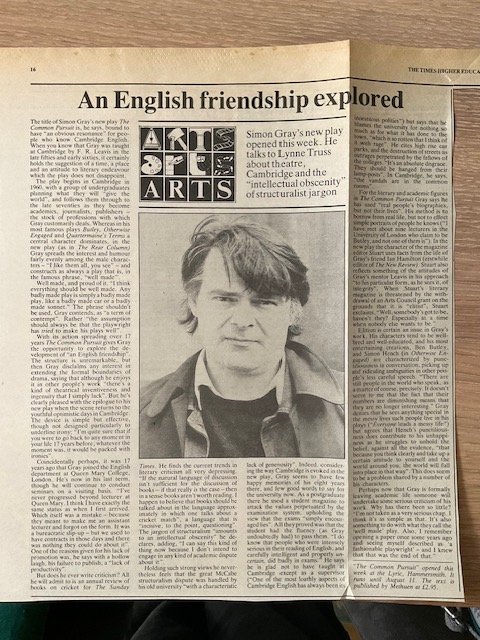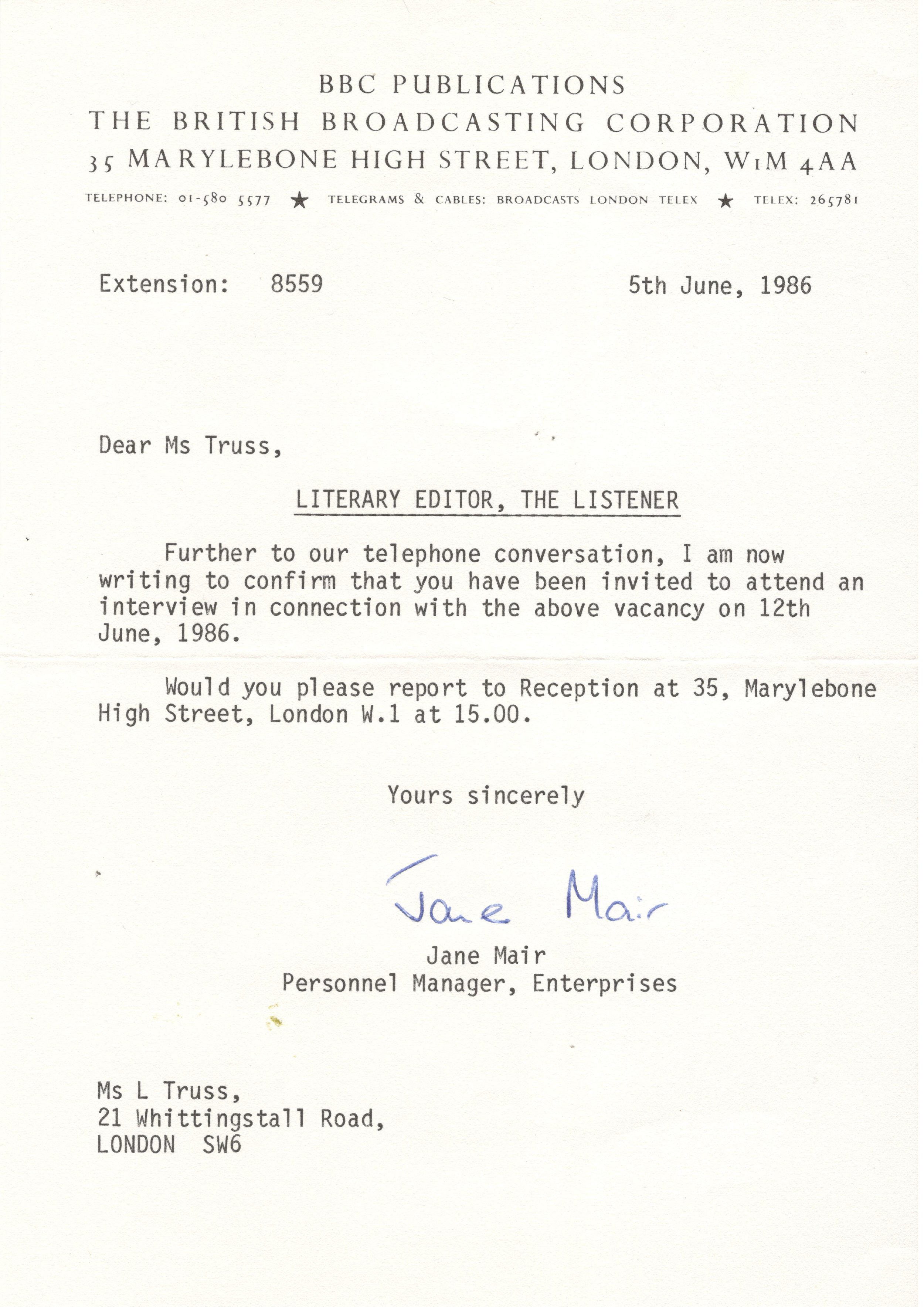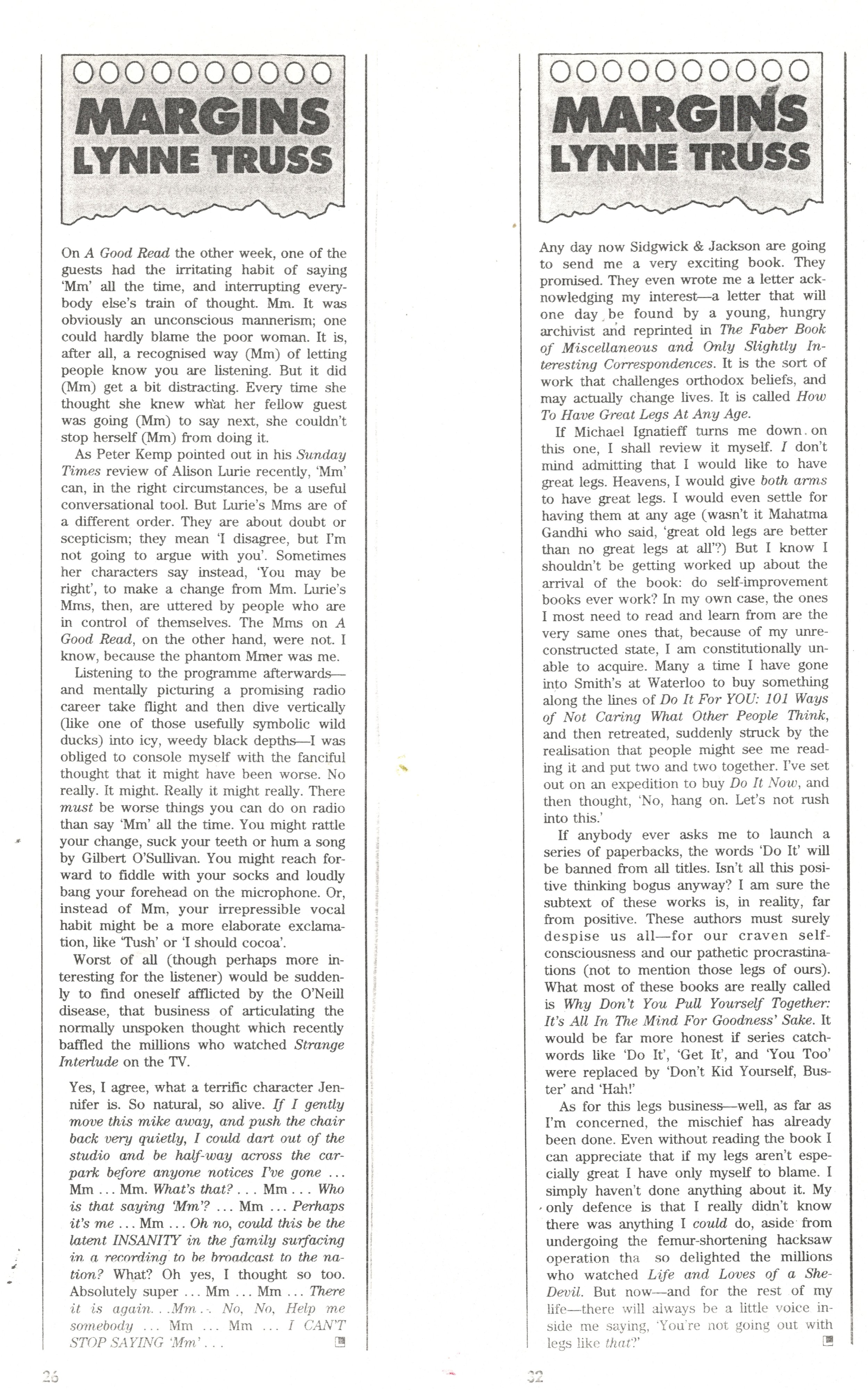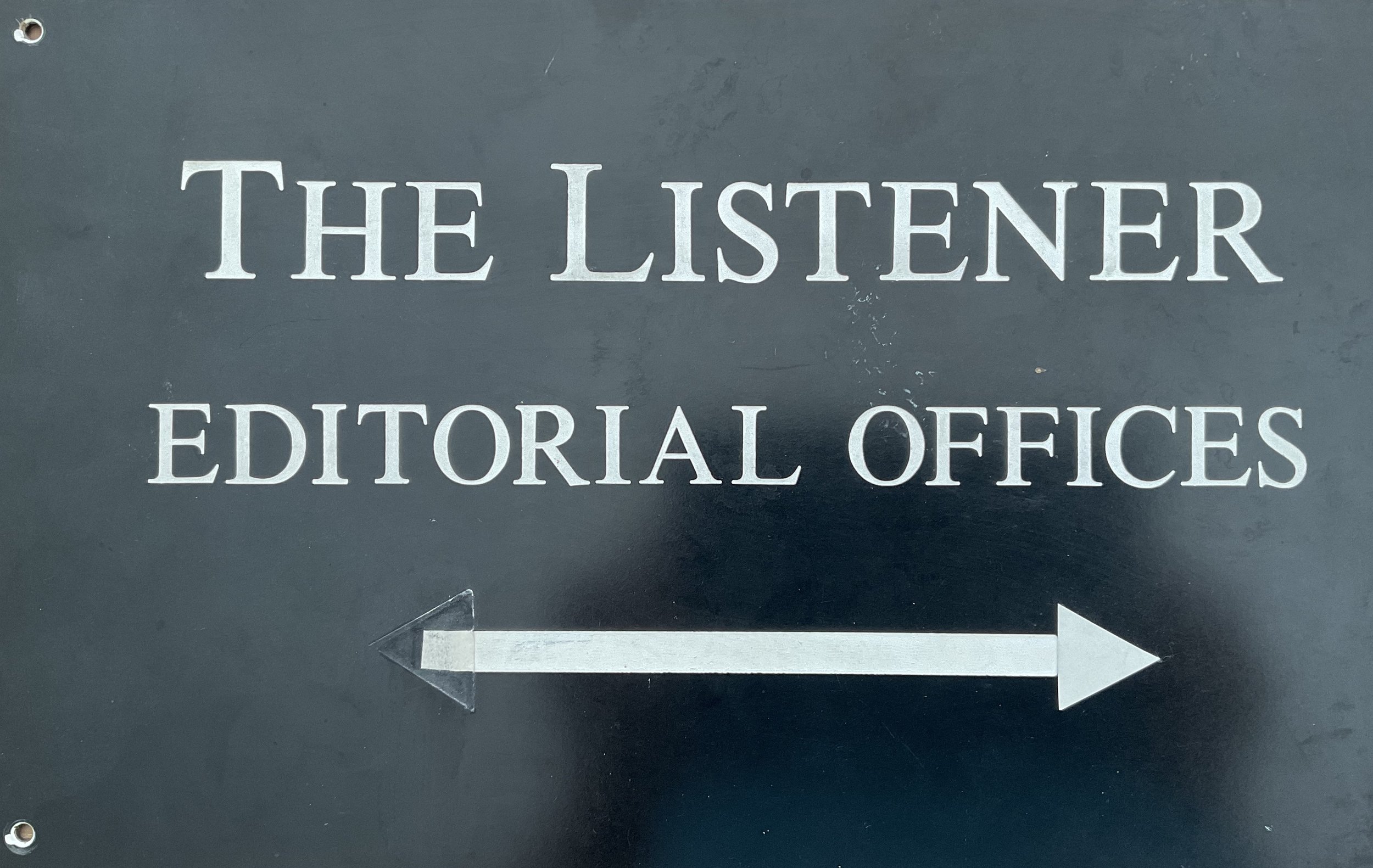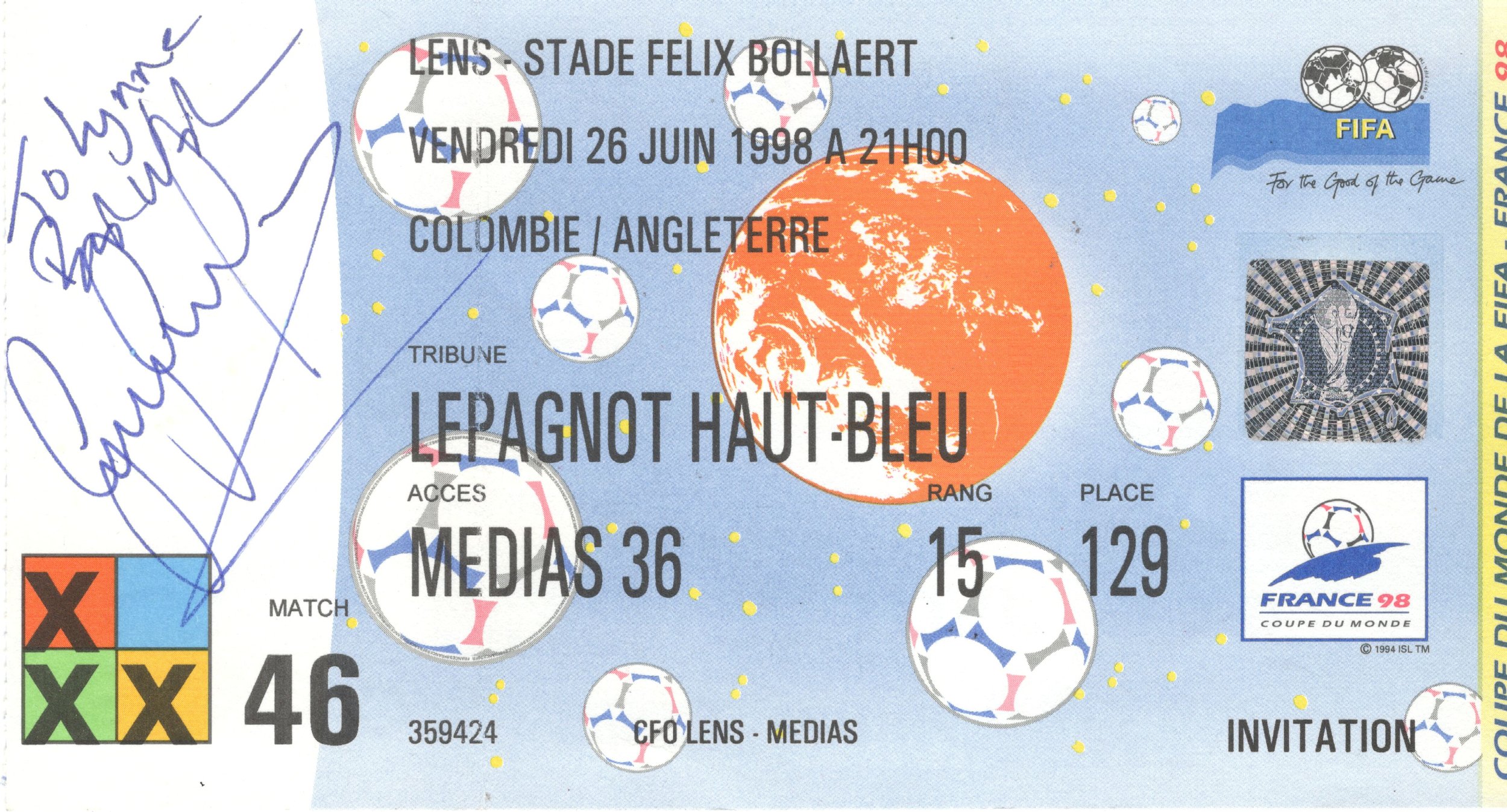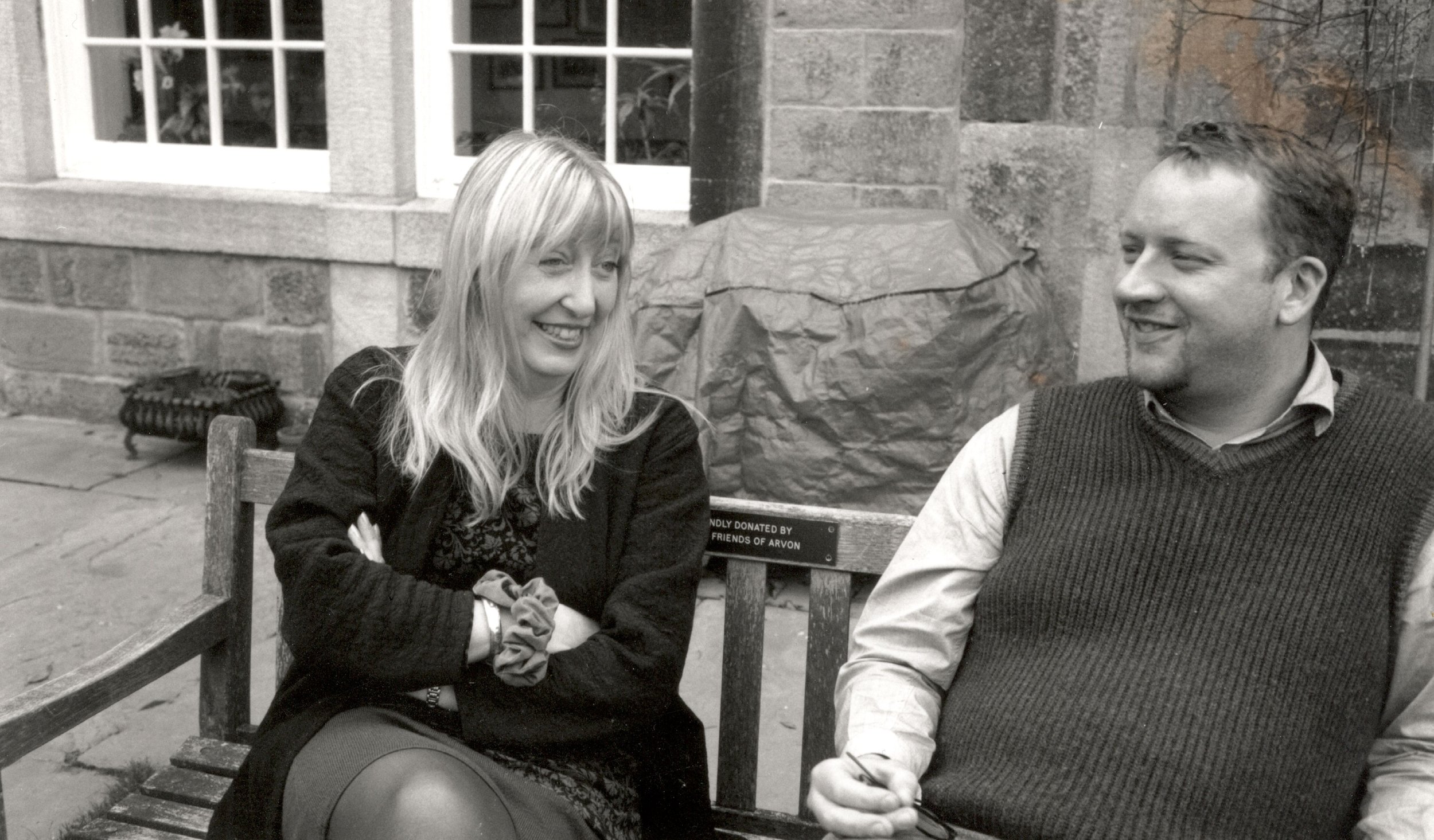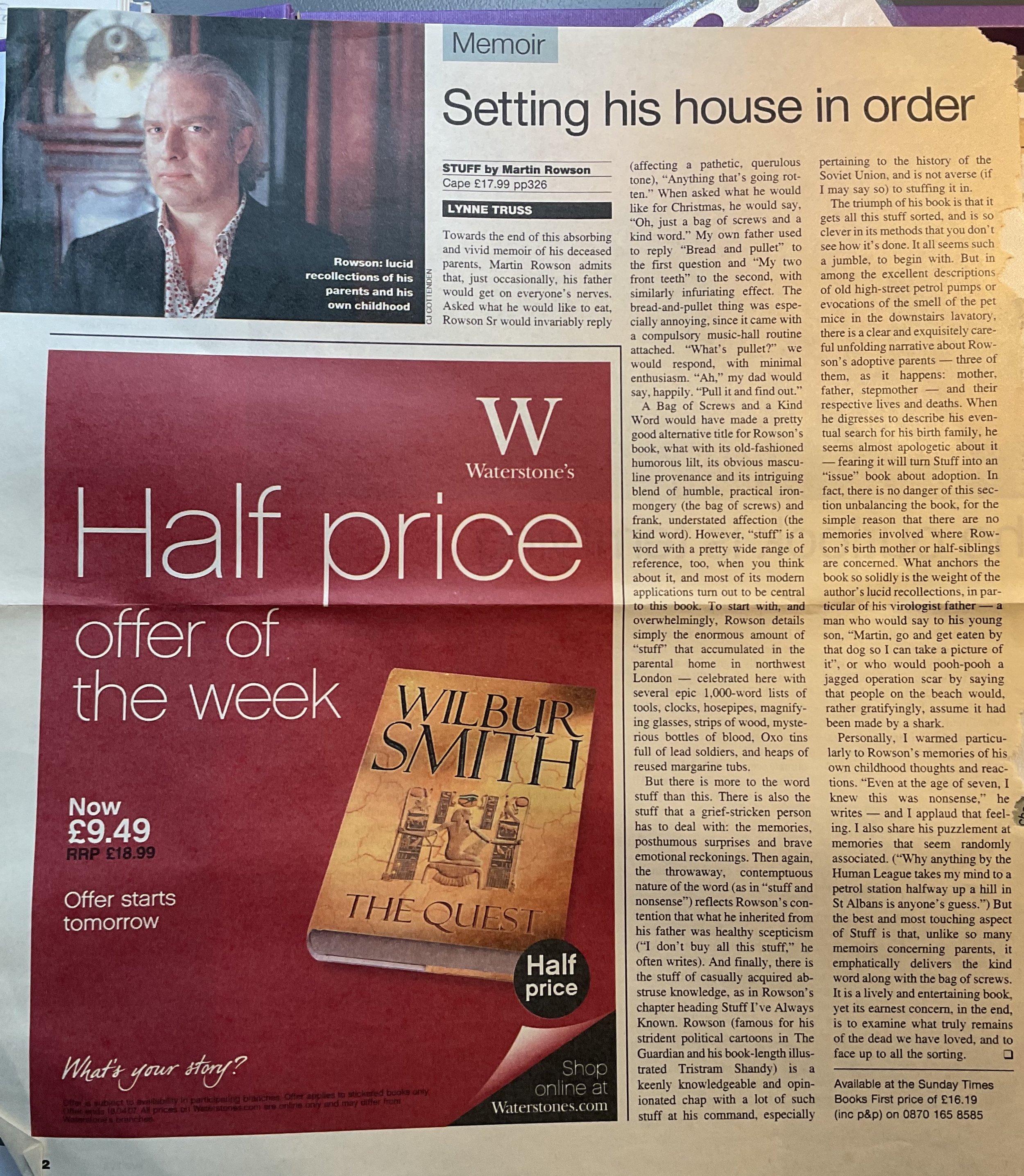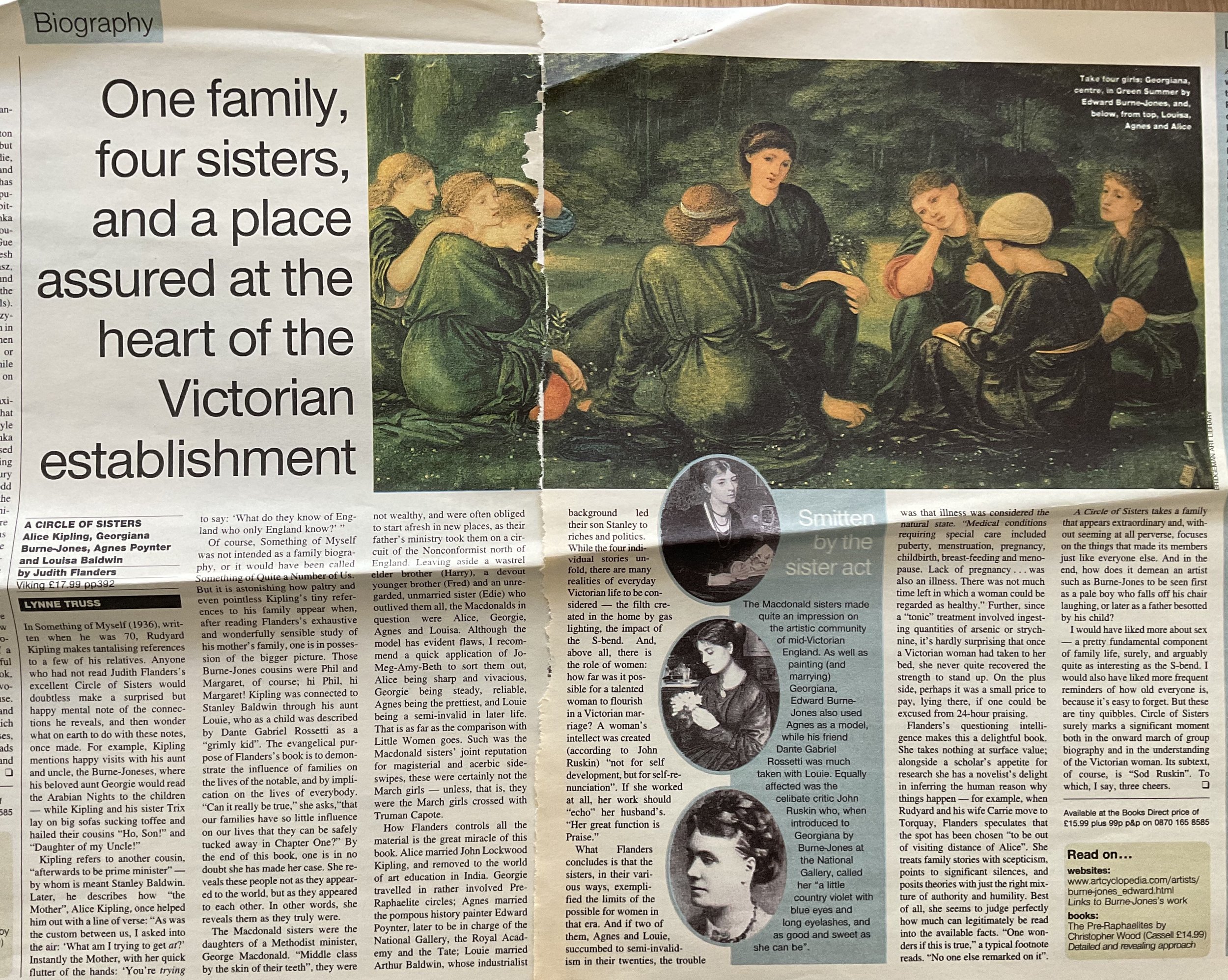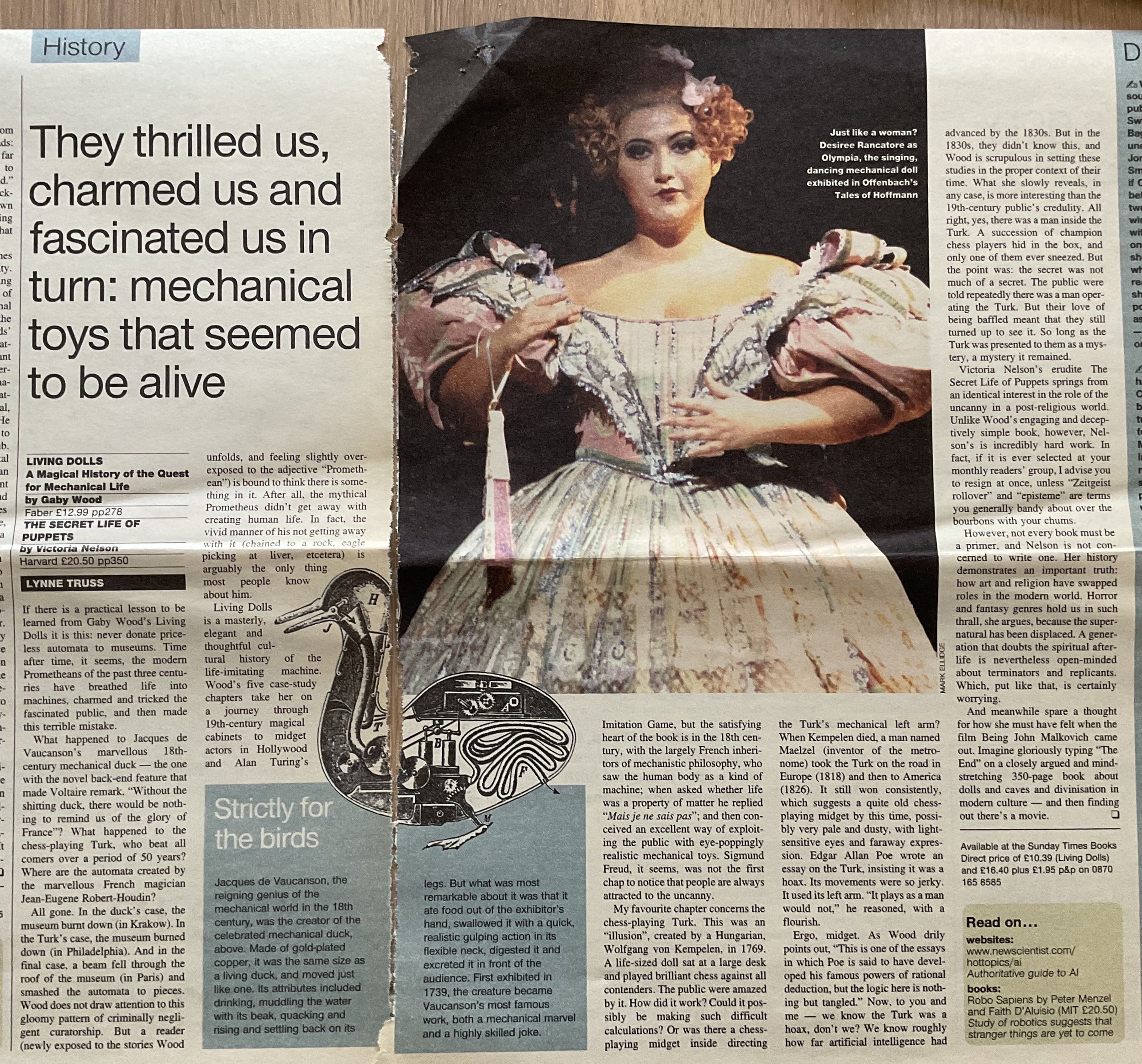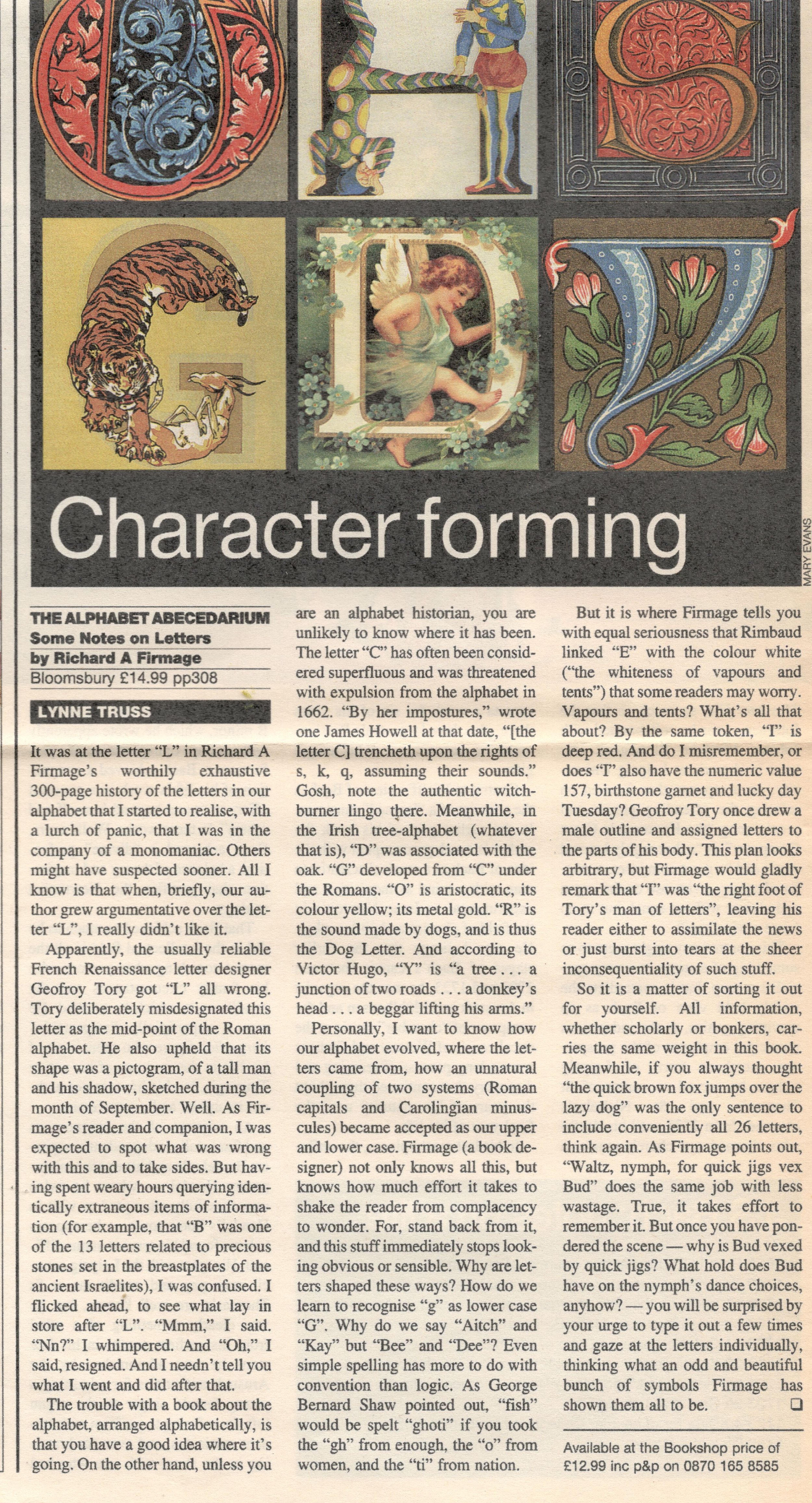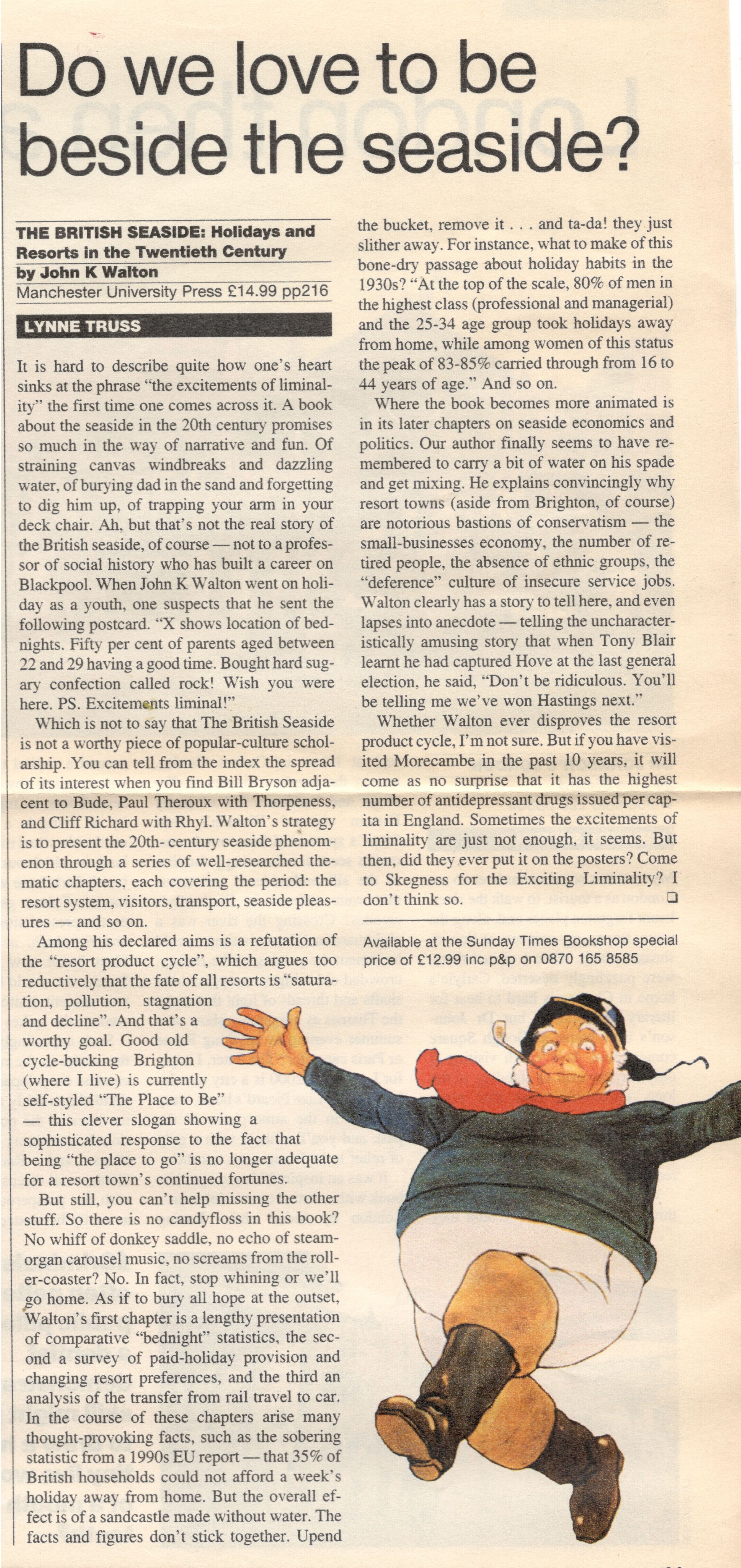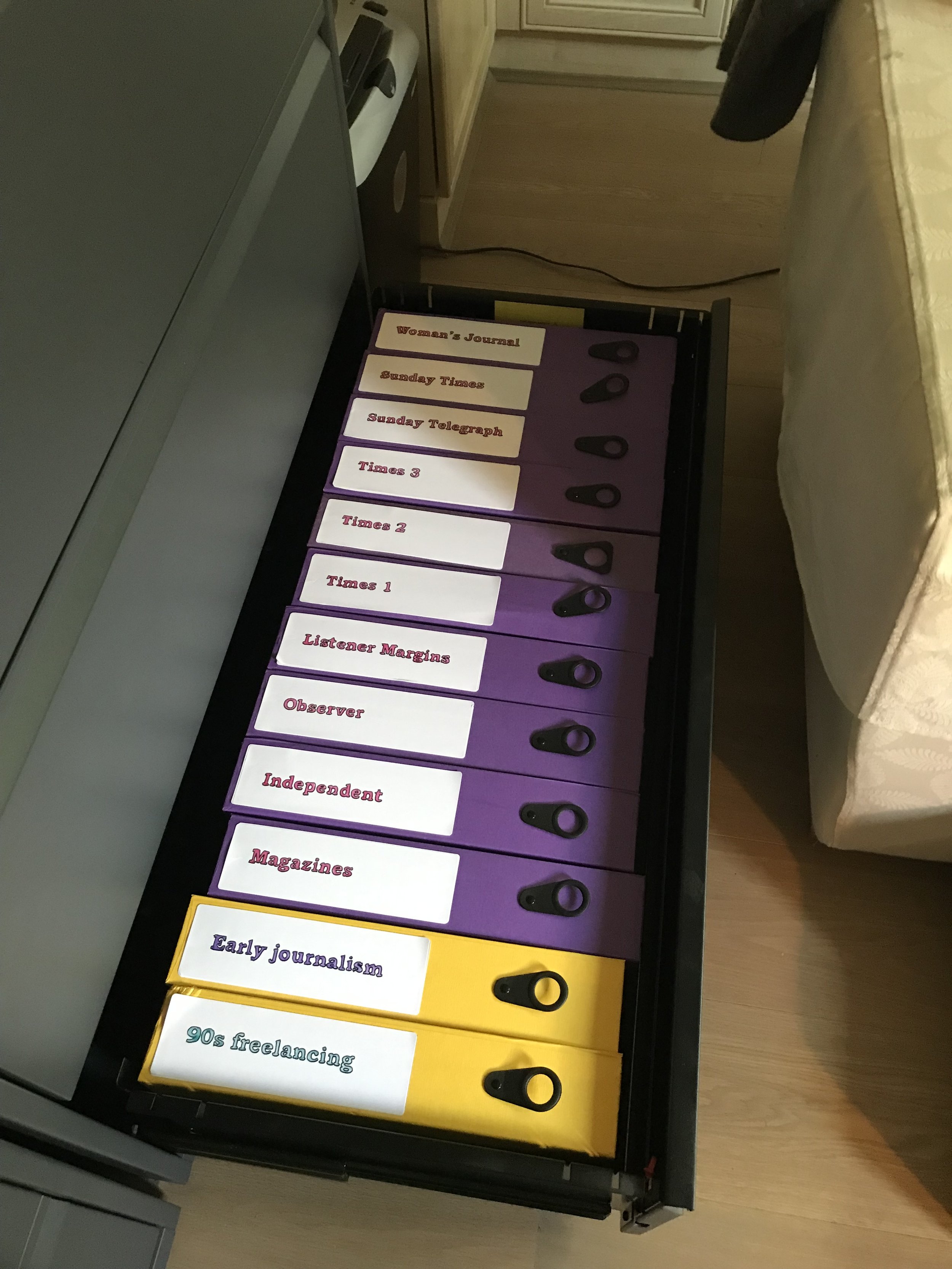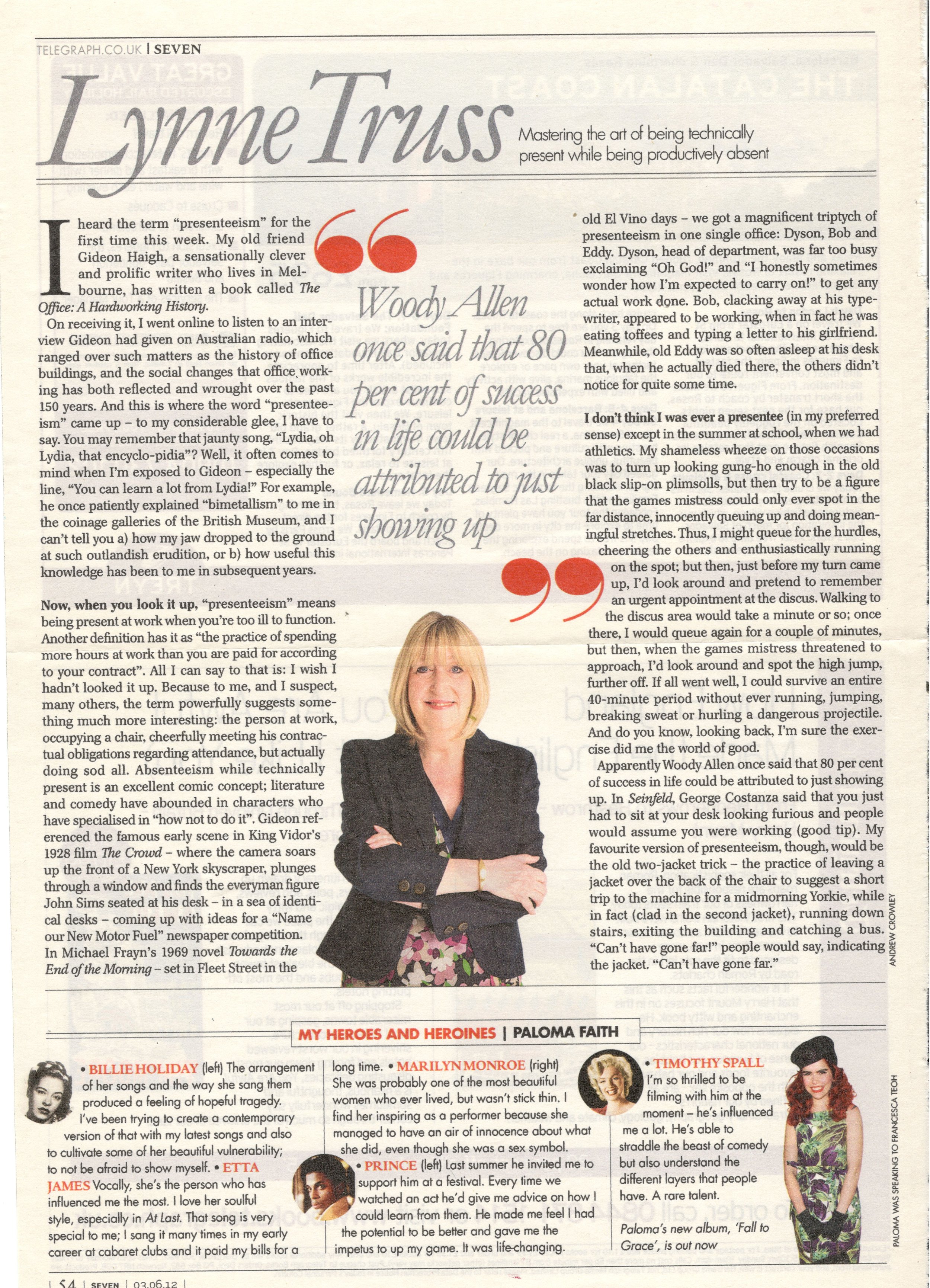Journalism
The word journalist tends to conjure the wrong idea.
It makes you think of war correspondents in flak jackets. The most front-line I ever became was when writing about sport for The Times, when I was so swept along by events that I did consider myself a witness to history – but, even in those heady days of reacting to real-life events, bullet-proof clothing never came into it.
My first piece in print appeared in 1978, when I speculatively handed in a review of a Stratford production of Love’s Labour’s Lost to my editor at the Times Higher Education Supplement. Later in the day I went back to see if he’d read it, expecting him to hand it back with stern comments and crossings-out. But he said, “Oh, that. It’s been ticked up for Features.”
And so it began.
Pre-1991
Employment
On leaving university in 1977, I fell into a job at Radio Times, subbing on the listings pages. My plan was to take up a place for a PhD at UCL in 1978, studying 18th-century sentimental novels, but I was saved from this dreadful fate when in the spring of 1978 a job was advertised at the Times Higher Education Supplement, which I surprisingly got. After eight years on this vibrant weekly I applied for the job of Literary Editor at the Listener, a magazine I had always loved. I stayed until a year before the magazine was scrapped by the BBC. Writing was obviously the way forward for me, and I went freelance in 1990, on a contract with the (then new) Independent on Sunday, writing for the arts and books pages.
Freelance
While at the Times Higher in the early 1980s, I had started writing for the Times arts page, interviewing mainly people in the theatre world: actors, playwrights, directors. Having listened quite recently to the tapes of my interviews, I can report that I was an appallingly anxious and serious-minded interviewer, who kept her nose to her notes rather than conversing – it must have been both unnerving and hilarious to be questioned by me. As for the writing, this was at a time before word processing, but when word length was as vital as it would ever be, so the process of editing my pieces at home involved laborious word-counting and retyping, with a lot of Tippex correction fluid involved as well. As a Times group employee I was limited to writing for Times publications, so also did book reviews and arts pieces for the TES and TLS. Happy days, actually.
Scrap Book - Pre 1991
The Times
The Times in the 1990s was a great newspaper, and I found myself one of the stable of writers they seemed most proud of. At one point I was writing a column that was mainly about living alone with cats. Private Eye one day had a little feature, “The Times In the Ice Age” – to illustrate how long the same writers had been writing the same stuff over and over. It featured Libby Purves on something, Matthew Parris on something else, and Lynne Truss on “how my sabre-toothed tiger is coping.”
-
Things stepped up a gear when I was invited to review TV for The Times. Simon Jenkins was editor; Richard Morrison (terrific music critic and arts editor) was the chap who invited me. I took over from Sheridan Morley, and at first appeared just once a week on the arts pages (Friday). Over time this changed to Saturday, then became three times a week at the top of the listings page, with Matthew Bond doing the other two weekdays.
Television in the 1990s was of course largely confined to four terrestrial channels, but I can attest that there was an enormous amount of high quality, and I still recall stand-out dramas and documentaries from those years. This was the heyday of in-house BBC documentary-making, with the 40 Minutes strand, as well as Horizon and Inside Story. I also witnessed the exciting return of costume drama to the BBC (with Pride and Prejudice), after the head of drama had for some years actually – and astonishingly – banned it.
-
A couple of years into my working for The Times came a redesign of the paper so that on weekdays it fell into several sections. One of these was for features, and five columnists were hired for the front page of this section on different days of the week. John Diamond (Monday) wrote “Private Life”; Libby Purves (Wednesday) did “Working Life”. I was Tuesday. My column was “Single Life”, and I had more fun writing that column than was quite decent. I revelled in it. Having recently come out of a relationship, I had much to say about single life – from the earthy practicalities to the more existential issues.
When the section inevitably died, I survived on the OpEd page for quite a while until a new OpEd editor quite reasonably demanded the precious space for more serious pieces. I actually wept when editor Peter Stothard broke the news – but looking back I’m amazed that anyone tolerated me there for so long.
-
In the early days of the internet, can you believe there were people who just didn’t have a clue what was being talked about? Luckily for me, when The Times launched Interface, its weekly section on internet stuff, they decided to reflect the know-nothing sector of its readership by having me write a column called “Logged Off”, which was a record of my ongoing struggle – mostly just to get online at all, but then also to find anything of merit when I got there.
This was before Google, you understand. You had to buy printed website directories from W.H. Smith’s. When emails arrived there was a cock crow. I re-read these columns recently (a great aide-memoire) and I still laughed at the advice I was given from a reader about wrapping the telephone wire around a bookcase on the landing to improve my chances of making a connection – which sounded like patent nonsense but actually worked.
-
In 1996 the European Championships (football) were held in England, and a bright spark from the Sports department asked me to write about them from a non-sports-expert point of view. Having no knowledge of a subject, but writing about it anyway, has always been an attractive proposition for me: I love passing on incredibly well-known facts that are new to me. I appreciate the comic potential.
As it happens, I’ve written a whole book about this period in my life (Get Her Off the Pitch), so I shan’t go into it here. Suffice to say here that my four-year stint as a sportswriter was a stand-out period in my life. And it was great, just for once, to be on a winning team on a newspaper. Sport sells papers! The people running the department – Keith Blackmore and David Chappell – were incredibly professional! People love reading about it! And for a while I was truly part of that, filing 900 words from Old Trafford “on the whistle” along with the rest of the guys.
Scrap Book - The Times
Critic
As a book reviewer, I’ve been asked by a variety of publications, but the longest stint was with the Sunday Times in its glory years, under the literary editorships of Caroline Gascoigne, Susannah Herbert and Andrew Holgate. As for theatre, I was for a (very short) while the second-string on The Daily Mail, but I found I didn’t have the stomach for it, despite the money being good.
In the early 2000s I was living a bit hand-to-mouth, after giving up a very nice contract with The Times, so reviewing was a lifeline, and a friendly Mail editor gave me the odd week of film criticism. It was fascinating to see how, each week, there was always the same range of releases: a would-be blockbuster (usually disappointing), plus a teenage gross-out feature (reliably disgusting), plus horror, plus one solid British film, plus one amazing foreign art-house movie that no normal person was likely to go and see.
Scrap Book - Critic
From the 1990s to the 2010s, I had very pleasant stints as a columnist on several publications. The one for Woman’s Journal in the 1990s won me Magazine Columnist of the Year, which was very gratifying. When I wrote for Saga, I was unsure whether the readers liked me, as I got so little correspondence. In fact, I once inquired whether they’d had any responses, and was forwarded a reader’s letter pointing out to me that having one eye much bigger than the other was often the sign of a brain tumour, so I ought to have myself checked out. (I didn’t ask again.)
Writing a weekly column for the Sunday Telegraph was a very pleasant few years. For one thing, the by-line pic was so nice I still use it on travel cards. My column appeared on the back page of the “Seven” section, and my main contacts were a delightful team who all suddenly lost their jobs (as did I) when the section folded.
And I mustn’t forget Waitrose Weekend, where for several pleasant years I was made to feel part of a very professional and friendly team. I did once try to show my byline picture at the information desk when picking up an item (“Do you have ID?” they asked, and I said, “Ooh, I know! How about this?”, opening the paper and pointing.) Turned out it was funnier in my head.




